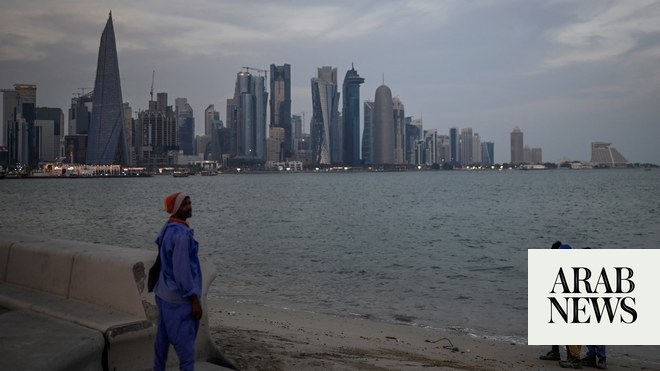
Qatar is not fulfilling all its promises to improve the conditions of migrant workers in the country in the run-up to the 2022 World Cup, Amnesty International said Thursday.
In a report entitled "All Work, No Pay", the rights group said: "Despite the significant promises of reform which Qatar has made ahead of the 2022 World Cup, it remains a playground for unscrupulous employers."
The report came as French President Emmanuel Macron and Qatar Emir Sheikh Tamim bin Hamad Al-Thani were due to meet in Paris on Thursday.
Sheikh Tamim also attended Wednesday"s high-profile clash between Paris Saint-Germain -- owned by Qatar"s state-owned investment fund -- and Real Madrid.
Doha has made efforts since being named World Cup hosts to improve the conditions of the migrant workers who make up a majority of the Gulf emirate"s population.
In November 2017, a temporary $200 monthly minimum wage was introduced for most categories of workers with a permanent level expected to be set before the end of the year.
Exit visas granted at the discretion of employers, required by some workers to leave the country, should be entirely scrapped by the end of 2019 according to the International Labour Organization (ILO).
But Amnesty reported challenges faced by hundreds of workers at three construction and cleaning companies in Qatar who went unpaid for months.
"Migrant workers often go to Qatar in the hope of giving their families a better life; instead many people return home penniless after spending months chasing their wages, with too little help from the systems that are supposed to protect them," said Stephen Cockburn, Amnesty"s deputy director of global issues.
After coming under fire over the treatment of migrant workers, Qatar agreed with the ILO in 2017 to undertake labour reforms, including establishing new dispute resolution committees.
"We are urging the Qatari authorities to fully deliver what has been promised and end the shameful reality of labour exploitation," Cockburn said.
Amnesty cited the case of a Kenyan employee of United Cleaning who said he had to rummage for food in garbage bins after receiving no salary for five months.
The man said he had worked for two years and five months for the company without taking any holidays and was owed "a lot of money".
The companies all cited financial difficulties for the non-payment of wages, according to the report.
A Qatar government spokesman said the country had "made substantial progress on labour reforms".
"We continue to work with NGOs, including the ILO, to ensure that these reforms are far-reaching and effective," he said in a statement.
"Any issues or delays with our systems will be addressed comprehensively. We have said, from the outset that this would take time, resources and commitment."












